TV Tinsel: Leo Suter steps into role of detective inspector in 'Lynley'
Published in Entertainment News
Actor Leo Suter went from tight-fitting silk breeches and a waistcoat to itchy wool tunics and bear skins. For him it was all in a day’s work.
People first noticed the British actor for his roles in elegant period pieces like “Sanditon,” “Victoria" and “Beecham House.” But he growled to prominence as warrior Harald Sigurdsson in “Vikings: Valhalla.”
“I was getting very good at ballroom dancing and do-si-dos,” he says. “Then I got ‘Vikings,’ a show which felt like a really fun new avenue; new genre, and then I got good at stunts and fights and horse riding.”
Of course none of that was any good for his next role as the aristocratic Detective Inspector Thomas Lynley in “Lynley” premiering on BritBox Thursday, Sept. 4.
The show is a remake of the popular series “The Inspector Lynley Mysteries,” which aired for six seasons beginning in 2001.
What’s unique about the character from Elizabeth George’s novels is that he’s a titled peer of the realm in a commoner’s job. In England, that’s a big deal.
It was a challenge, says Suter, who is actually upper class himself and attended Oxford. “Central to the ‘Lynley’ series and the books is the concept that he was an aristocrat, the son of an earl,” says Suter, 31. “And figuring out how realistically you portray that and pronounce that — if you are that — and you are in a police station. It’s not something that you would trumpet, sing loudly about, because you'd get the nick taken out of you by everyone else who worked there,” he says.
Finding ways to show the audience that he is of the upper crust was tricky, he says.“You need to express it without doing something clunky like, ‘Oh, by the way, I’m the eighth Earl of Asherton.'”
Suter, who majored in “human studies” at Oxford says, “That’s as close to your liberal arts as you can get.” It was a combination of sociology, anthropology, medicine and physiology. “I got really into population genetics,” he says, “molecular genetics and anthropology, which was very interesting. I loved it,” he says.
So how did he go so wrong? It all began when he was 11. “I think I remember doing scenes from Shakespeare from 11 onwards and it's worth saying that I had a brilliant teacher who really inspired me and encouraged the love of the arts. I really liked it, and you like what you're good at, and you're good at what you like — they sort of feed into each other.”
His dad was an English and drama teacher, later a script editor for BBC Radio 4. His mother was an accomplished businesswoman and a titled Dame of the British empire. “My grandmother, on my mother’s side, was born in St. Petersburg, grew up in Estonia and came to this country in 1937 before the Second World War. She was sort of Ukrainian, Russian, German, French heritage, so she was a fascinating woman.”
His grandmother served as consultant on various theater productions in England. “As a Russian emigre, she could advise on how Russians would sit, talk, smoke and how the iconography would be displayed,” he says.
“She passed away when I was 9, so I have a few memories. And I remember turning up at her house and my main recollection of her is that she would give me sweeties that she used to hide in her desk drawer.”
Suter’s mother died when he was only 22. “You wouldn't wish it on your worst enemy but when you've gone through it, if you've been at their bedside when they've passed away, there is something utterly moving, spiritual, transcendental about watching that moment, and it changes you,” he says softly.
“I think when you lose a parent at any age, it’s foundational. It rocks you to the core. And it makes you think, what is life? And how long have I got left? And am I doing justice to the time I’ve got? It’s hugely profound.”
Another profound moment for him was marrying his wife, Haylee, who is not only a dancer and choreographer, but also an American. “When I got married that was pretty special and as well it's talking about sort of a foundational change when you find the person who you want to spend the rest of your life with. And they’ve got your back, and you've got theirs, and therefore you're the most wonderful team — realizing that, knowing that, and cementing it can be euphoric. It gives you such clarity and such purpose.”
Weatherly is back in 'NCIS' spinoff
Michael Weatherly is back with his former co-star, Cote de Pablo, in the new “NCIS” spinoff, “NCIS: Tony & Ziva” premièring on Paramount+ Thursday, Sept. 4.
Weatherly left the indestructible “NCIS” in 2016 and it was never the same. In this new version, the couple has been reunited and are on the run through Europe when Tony’s security company is targeted by an unknown force.
When Weatherly first saw the script for “NCIS,” the chief role had not been cast, and he was being considered for the part of Leroy Jethro Gibbs, which Mark Harmon eventually snagged.
The character of Tony was nothing like him, says Weatherly. “Of course all actors are always drawn to things that aren’t necessarily in their wheelhouse,” he says.
“I found it a great challenge ... I loved playing somebody who was kind of a rebel without a cause. He’s a federal agent but he has very little regard for towing the line of political correctness or anything like that. My hair was dark from playing Robert Wagner (in ABC’s “The Mystery of Natalie Wood”) so I had dark hair in the beginning — which I felt was more DiNozzo — then as I got into it, I felt like he was a big kid and had this unbridled enthusiasm. And he wasn’t so much a jaded cynic, misogynist guy as much as he was playful more like Han Solo, a guy who’s running around.”
‘Guns & Moses’ enjoys second chance
Based on a true story, the movie “Guns & Moses” seizes a second chance at more than 500 theaters starting Sunday, Sept. 7. The story of a peace-loving rabbi who is forced into battle stars Mark Feuerstein, Neal McDonough, and Dermot Mulroney.
The film is based on the shooting that took place in a Poway, California, synagogue six years ago.
Feuerstein, who’s known for “Royal Pains” and “What Women Want,” went to Princeton to study law. He tells me, “I was so on that track to go to law school and be an executive at Goldman Sachs and then I auditioned for a play on a whim. That first audition did not fare so well but my second I did.
“The first was for ‘Burn This’ the second was for ‘Orphans’ and that went great. I did it with two guys who are still in the business, these really cool people. I got a Fulbright and went to London to study for a year. I studied with all those British theater folk and this clown teacher from Paris who would put you up in front of the class (in French accent) and say, ‘’ello nice to you. Be funny. Be funny.’
“And you’d be dying. You’d say, ‘Hi, everybody.’‘Not so good,’ he’d say.‘You are not so good. So I help you a leettle bit. You make the sound of a washing machine. Go!’
“So I’m up there doing my best washing machine, phaw-phaw-phaw. And he said, ‘Deeed you smell it? Deed you smell the poop in the room during your floppy nightmare? Eet was ‘orrible, ‘orrible.’” Fortunately, Feuerstein got way less ‘orrible as time went on.
Graham stars in rags-to-riches drama
If you like rags-to-riches stories with a Yorkshire accent you're in for a treat starting Wednesday, Sept. 10, with the “The Hardacres.” The six-part series will premiere on BritBox and stars Liam McMahon and Claire Cooper as the struggling couple in a slimy fish dock whose future looks bleak. The wonderful Julie Graham plays Cooper’s mother.
Graham has had her own struggles to deal with, she says. She was only 18 when her mother, actress Betty Gillin, died of cancer. Her father wasn’t in her life, so she was on her own. “What happens to you, you just get on with it,” she says.
“It’s the confidence of youth where you think, ‘I’ve just got to do it. I’ve got to get on with it.’ I don’t think you're scared so much when you're young because it’s a new world, and also I had no money, but I worked in a lawyer’s office in the day.”
She had applied to drama school but was offered a part in a movie and never looked back. “My drama training was actually doing it. It was a baptism of fire. There’s nothing like learning your craft on the hoof,” she says in her Scottish lilt.
“When I started working in theater — which was the majority of my work first — I watched so many actors who I really respect, who also hadn’t gone to drama school. And my mum hadn’t gone to drama school either. So for me, it wasn’t so intimidating. I think drama school was more about sex, drugs and rock-and-roll rather than actually learning.
———
©2025 Tribune Content Agency, LLC
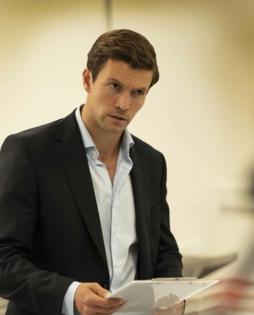
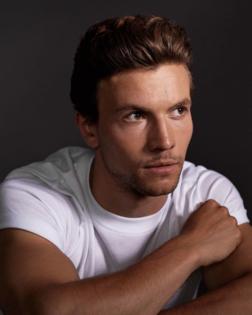
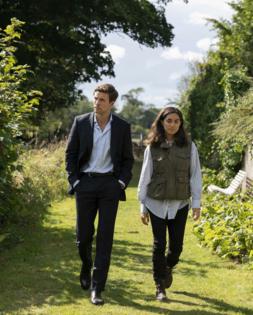
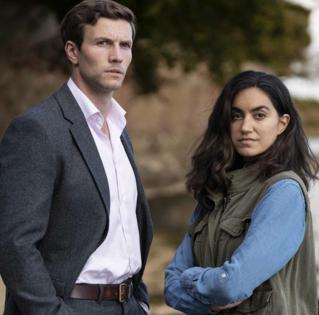
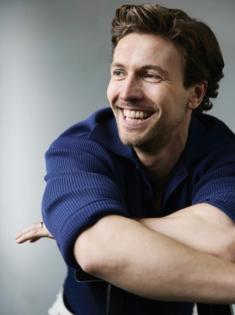

















Comments